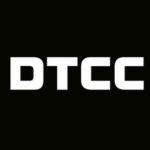In other news, the SEC makes PCAOB appointments, the DTCC looks to private markets, and Baillie Gifford has a new IBOR.
Collaboration to Target Ongoing UMR Calculations
 CloudMargin, a collateral and margin management vendor, and Margin Tonic, a service provider for collateral and post-trade operations, are working together to launch “a global Average Aggregated Notional Amount (AANA) calculation service” that trading firms can use to navigate the phases of the Uncleared Margin Rules (UMR) regulatory reforms.
CloudMargin, a collateral and margin management vendor, and Margin Tonic, a service provider for collateral and post-trade operations, are working together to launch “a global Average Aggregated Notional Amount (AANA) calculation service” that trading firms can use to navigate the phases of the Uncleared Margin Rules (UMR) regulatory reforms.
The collaboration will unite CloudMargin’s technology with Margin Tonic’s regulatory consultancy services, officials say.
“The joint subscription service automates the AANA calculation for clients on the CloudMargin platform, leveraging Margin Tonic’s expertise in the multi-jurisdictional Uncleared Margin Rules and helping clients to fine-tune fit-for-purpose trading and compliance strategies,” according to an official statement.
The vendors note that firms that are in scope for Phase 5 of UMR “based on their AANA calculations for March, April and May of 2021” have begun exchanging Initial Margin (IM) from September 1 for trading of non-cleared over-the-counter (OTC) derivatives.
“A much larger group of mainly buy-side firms, estimated at almost 800 firms by the International Swaps and Derivatives Association (ISDA), is expected to fall into scope for Phase 6, which takes effect on 1 September 2022. This follows AANA calculations conducted in March through May of the same year for most jurisdictions,” according to the vendors. “Importantly, even for those firms under the threshold ($8 billion in the U.S. or €8 billion in the European Union) and not in scope for Phase 6, there is a regulatory need to perform ongoing year-on-year AANA calculations to assess if firms will come into scope any year after September 2022.”
In addition, the vendors say that “trading volumes and products will also change over time, meaning that AANA calculations should be performed regularly and on an ongoing basis. A proactive monitoring approach ensures firms will have full readiness in place, with no late surprises on their AANA results and rushed compliance solutions,” officials add.
“Many firms don’t realize that they’ll need to maintain these AANA calculations on an ongoing basis, whether or not they fall into scope for Phase 6,” says Simon Millington, of CloudMargin.
SEC Names New Chairperson for PCAOB
 The SEC has appointed SEC veteran Erica Y. Williams as chairperson of the Public Company Accounting Oversight Board (PCAOB) and added as board members Christina Ho, Kara M. Stein, a former SEC commissioner, and Anthony C. Thompson, officials say.
The SEC has appointed SEC veteran Erica Y. Williams as chairperson of the Public Company Accounting Oversight Board (PCAOB) and added as board members Christina Ho, Kara M. Stein, a former SEC commissioner, and Anthony C. Thompson, officials say.
Duane DesParte will stay on as a board member and will remain Acting Chairperson until Ms. Williams is sworn in, officials add. DesParte has been serving as the PCAOB’s acting chairperson since June 4, 2021. Stein served as a commissioner from 2013 to 2019.
Thompson is the executive director and chief administrative officer for the CFTC, where he oversees the Division of Administration, officials say.
“The PCAOB was formed in response to a crisis of confidence in the corporate disclosures of issuers after the WorldCom and Enron accounting scandals nearly 20 years ago,” SEC Chair Gary Gensler says in a statement.
“The Sarbanes-Oxley Act of 2002 established the PCAOB to oversee the audits of public companies and registered broker-dealers through registration, standard-setting, inspection, and disciplinary programs,” officials say. The Sarbanes-Oxley Act requires the SEC to pick the members and chairperson of the board and gives the SEC oversight of the PCAOB.
DTCC’s ‘DSM’ to Target Private Markets
 Post-trade market infrastructure provider DTCC has launched the Digital Securities Management (DSM) platform that’s intended “to streamline the issuance, transfer and servicing of private market securities” officials say.
Post-trade market infrastructure provider DTCC has launched the Digital Securities Management (DSM) platform that’s intended “to streamline the issuance, transfer and servicing of private market securities” officials say.
The DTCC’s new Digital Securities Management (DSM) platform will “for the first time, provide an industry-wide solution that offers common market infrastructure and standards across private markets,” officials say. The platform is a milestone in DTCC’s efforts to “bring automation, standardization and efficiency to the private markets, building upon its Project Whitney case study.”
The DSM system will leverage “a cloud-based architecture to enable the book entry recordkeeping of securities as well as support the burgeoning digital asset ecosystem by providing the option to create tokenized representations of a security,” officials say. The DSM platform will also support the full cycle of securities.
“Further, DTCC is exploring the ability for broker-dealers to hold customer assets while relying on DSM as a ‘Good Control Location’ for both traditional and tokenized representations of securities, subject to regulatory consideration and approval,” officials say.
The DSM platform will initially support pre-IPO equity securities, funds, debt, real estate, loans “and other private instruments that are underserved today from a market infrastructure perspective,” according to the DTCC. “DTCC is currently in the production build phase of the DSM platform and, subject to final regulatory approval, is expected to launch the service in early 2022.”
Scottish Firm to Implement Finbourne’s IBOR
 Baillie Gifford, described as a global investment partnership with £352 billion ($486.8 billion) assets under management, picked Finbourne Technology’s investment data management platform, Lusid, as the investment book of record (IBOR) for its global investment operations, officials say.
Baillie Gifford, described as a global investment partnership with £352 billion ($486.8 billion) assets under management, picked Finbourne Technology’s investment data management platform, Lusid, as the investment book of record (IBOR) for its global investment operations, officials say.
“The platform will deliver a consolidated source of real-time investment data across Baillie Gifford’s equity, fixed income and multi-asset portfolios, as part of its drive toward a simplified cloud infrastructure,” according to an official statement.
The Finbourne’s software-as-a-service (SaaS) solution will “provide a virtual repository, with one source of real-time aggregated investment data available across the firm. Built on Amazon Web Services and using open APIs, Baillie Gifford will use Lusid to aggregate and translate market, reference and investment data sets (including portfolio holdings and transactions), from multiple systems into one, real-time standardized form,” officials say.
“Having traditionally developed our processes and technology in-house, LUSID will provide a cloud-native, open-source architecture, that delivers the operational efficiency and transparency we desire today, along with advanced technology, that our teams can build and scale up in the future,” says Richard McGrail, IT partner at Baillie Gifford, in a prepared statement.
Founded in 1908, Baillie Gifford has 1,488 staff and offices in its Edinburgh headquarters, Dublin, Frankfurt, Hong Kong, Krakow, London, New York, Shanghai, Toronto and Zurich, officials say.
Need a Reprint?